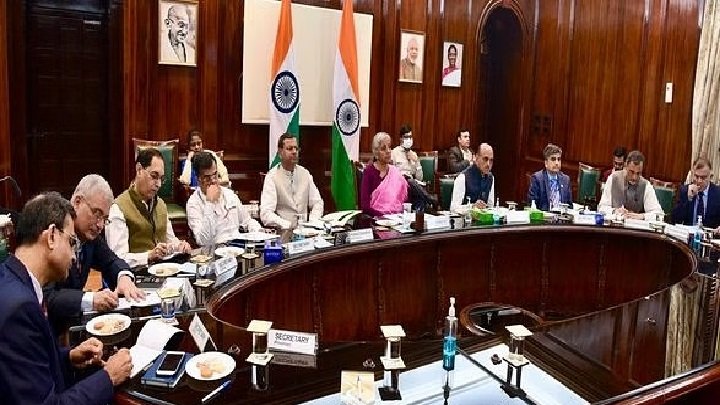It’s time to end Budget secrecy, deal final blow to India’s colonial hangover
Budget secrecy isn’t needed for a number of reasons, and doing away with it would actually benefit India’s policymakers.
With just one week having elapsed in the Budget’s ‘quarantine’ or ‘quiet’ period, there’s still ample time for the Narendra Modi government to do away with the last vestige of colonialism associated with the Budget-making process: secrecy. This would be in keeping with the previous Budget-related reforms that the BJP government has already implemented.
The quarantine period starts in December and continues till the Budget is presented on 1 February. During this period, reporters, policy advisory groups and industry bodies are barred from entering the finance ministry. Officials critical to the Budget-making process go into lockdown, many of them spending much of the quarantine period in the ministry, not going home until the Budget is presented.
The introduction of a digital-only Budget in 2021 meant that the number of people who have to go into such a lockdown and the duration have reduced substantially. However, secrecy around the Budget is still considered of paramount importance.
Budget secrecy is something that has stayed with Indian policymakers since Independence. Secrecy was important during colonial times because the Budget was presented in the British Parliament after it was presented in India. This allowed British and Indian officials to use insider information on proposed tax changes to make profits on the stock market.
Therefore, it became absolutely essential that the contents of the Budget were made known to only a handful of need-to-know officials before it was presented in Parliament. This has continued in independent India as well. But this secrecy is no longer needed for a number of reasons, and doing away with it would actually benefit policymakers.
One of the main reasons is also the main driver for why the Union Budget has ceded its pride-of-place as the preeminent policy document.
Reform that made Budget secrecy irrelevant
Before the Goods and Services Tax (GST) was implemented in July 2017, the Union Budget had a very large ‘Section B’ dealing with taxation proposals. It included not just direct tax proposals (income tax, corporate tax, wealth tax, capital gains tax, etc), but also all the indirect tax proposals (customs duty, excise duty, service tax, etc).
With the implementation of GST, not only were most of these indirect taxes subsumed into the new tax, the decisions on GST rates were also taken out of the Budget and placed under the GST Council. In other words, it’s no longer up to the Budget or, indeed, the central government to set the rates on the bulk of indirect taxes.
That has made Part B of the Budget a considerably slimmer section, and has dealt a huge blow to the arguments in favour of secrecy.
Direct taxes are still within the purview of the Budget but, possibly with the exception of capital gains tax, these don’t have a bearing on the stock market in any real way. More so because any changes announced in the Budget are made applicable only at the start of the next financial year, 1 April.
This brings us to one of the Budget-related reforms that the Modi government has already implemented. From 2017 onwards, the Budget has been presented to Parliament on 1 February instead of the last date of February as was done previously.
What this has meant is that individuals and companies have two entire months (February and March) to digest the announcements made in the Budget before they are implemented. Keeping the announcements secret before 1 February doesn’t really benefit anything in this case.
Incidentally, Budget 2017 was also the first where the Railway Budget was merged with the main Budget, ending another colonial practice of keeping them separate. Previously, in 1999, the Budget presentation was brought forward to 11 am from 5 pm to finally do away with the habit inspired by the time difference with the United Kingdom.
How to deal a final blow to colonial hangover
Part A of the Budget deals with policy announcements, budgetary allocations, and new schemes. This remains an important part of the Budget, but the government is handling it backwards. At the moment, the government announces the policies on 1 February (following some limited consultation), receives post-Budget feedback and/or criticism, and then tweaks the announcements.
The government would be better placed to lay the bulk of its scheme and policy proposals in the public domain in, say, early December. It can then invite comments, generate discussions, and announce the final version on 1 February.
Apart from doing away with Budget secrecy, the central government can also take a leaf out of its own pandemic-handling book and make Budgets a biannual affair rather than just once a year. In 2020, the Budget presented in February was almost immediately rendered irrelevant by the Covid-19 pandemic. Instead, the government was forced to regularly revise its policies in the form of the various Atma Nirbhar Bharat ‘mini-Budgets’.
This year, the Russia-Ukraine war that started towards the end of February, and the subsequent high inflation and lower demand meant that Budget 2022 could also have benefited from a mid-year policy tweak.
Currently, supplementary demands for grants are merely accounting exercises–more money is given where it is needed. While there is a need for policy stability, where a vision for the year is laid out in the main Budget, a formalised system for a mid-year rethink in response to extenuating factors could be useful.
But that may be too radical a change right now. Even secrecy can be done away with gradually. Start with Part A, which will benefit the most from being made public early. This policy shift would be the final blow to India’s colonial hangover in the Budget-making process.
(Edited by Prashant)
Source : The Print




